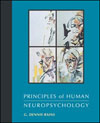We have reached the end of our journey through the domains of current knowledge of neuropsychology. We have examined the relationship between brain and behavior from many perspectives and from a number of different levels of analysis, ranging from the investigation of the individual neuron to the processes mediated by extensive regions of the brain. We have seen that this diversity of approach has begun to yield, if not a coherent picture, at least a decipherable sketch of how the brain works. Despite current advances, attempts to understand the relationship between the brain and behavior, and, in particular, between the brain and human experience and consciousness, pose certain difficult philosophical problems. Some of these seem to defy our attempts to achieve a unified theory of brain-behavior and brain-experience relationships. In this epilogue, we step back from the details of our current knowledge and consider some of the philosophical problems inherent in our striving for understanding in this perhaps most enigmatic domain of scientific inquiry. We also consider possible solutions to these problems. |



 2002 McGraw-Hill Higher Education
2002 McGraw-Hill Higher Education

 2002 McGraw-Hill Higher Education
2002 McGraw-Hill Higher Education